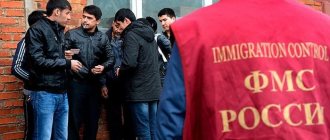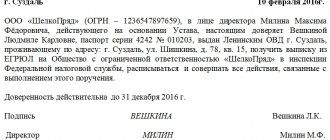Every child has the right
According to the Convention on the Rights of the Child, adopted by the UN in 1989, every human being under the age of 18 is recognized as a child.
The ability to have rights
(legal capacity)
arises in a person
from the moment of birth
.
The ability to independently exercise one's rights and bear
duties and responsibilities
(capacity) -
arises in full
with the onset of adulthood, that is,
upon reaching the age of 18
; as well as in (provided by law) cases of marriage before reaching 18 years of age; when a person who has reached the age of 16 is declared fully capable if he works under an employment contract or, with the consent of his parents, is engaged in entrepreneurial activity.
Legal representatives
When a minor child exercises his or her rights, they are the parents or persons replacing them.
In the Russian Constitution
(Article 2) it is established that “a person, his rights and freedoms are the highest value. Recognition, observance and protection of human and civil rights and freedoms is the responsibility of the state.”
Legal status of the child
- these are his rights, duties and responsibilities from birth to adulthood.
The legal status of a child changes as he/she grows up. The set of rights and responsibilities and the nature of responsibility are determined, first of all, by the age of the child.
Child's rights
From birth.
The rights that a child acquires from the moment of birth include: the right to life (Article 6 of the Convention on the Rights of the Child, Part 1 of Article 20 of the Constitution of the Russian Federation); the right to a first name, patronymic and last name - from the moment of registration (Article 7 of the Convention on the Rights of the Child, Article 58 of the Constitution of the Russian Federation); the right to a nationality (Article 7 of the Convention on the Rights of the Child); the right to know one’s parents, the right to live and be raised in a family; the right to full development and respect for human dignity (Article 27 of the Convention on the Rights of the Child); the right to protection of one’s rights and legitimate interests by parents, guardianship authorities, prosecutors and courts (Article 3 of the Convention on the Rights of the Child, Articles 56, 57 of the Family Code of the Russian Federation); property rights (Articles 9, 12 of the Convention on the Rights of the Child, Article 60 of the Family Code (FC) of the Russian Federation); the right to use the most advanced health care services and means of treating illnesses and restoring health (Article 24 of the Convention on the Rights of the Child); the right to rest and leisure; to full participation in cultural and creative life (Article 31 of the Convention on the Rights of the Child); the right to protection from economic exploitation (Article 32 of the Convention on the Rights of the Child); the right to protection from the illicit use of narcotic drugs and psychotropic substances, use in the illegal production of such substances and trade in them (Article 33 of the Convention on the Rights of the Child); the right to protection from sexual exploitation (Article 34 of the Convention on the Rights of the Child); the right to protection from abduction, trafficking or smuggling (Article 36 of the Convention on the Rights of the Child).
From one and a half years
the child has the right to attend the nursery.
From three years old -
has the right to attend kindergarten.
At the age of six
the child has the right to enroll in school (the right to education, Article 43 of the Constitution of the Russian Federation) and the right to independently carry out small household transactions (for example, purchasing stationery or groceries); transactions aimed at obtaining benefits free of charge, requiring neither notarization nor state registration; transactions for the disposal of funds provided by legal representatives or, with their consent, by a third party (Article 28 of the Civil Code of the Russian Federation).
From the age of eight
the child acquires the right to be a member and participant of a children's public association (Article 19 of the Law “On Public Associations”).
From the age of ten -
has the right to give consent to change his name and (or) surname, to restore a parent’s parental rights, to his adoption or transfer to a foster family (Articles 132, 134, 154 of the RF IC). Express his opinion about which of his parents, who are divorcing the marriage in court, he would like to live with after the divorce.
From the age of fourteen
the legal status of the child is significantly expanded. Children who have reached the age of 14 have the right to give consent to change their citizenship (Article 9 of the Law “On Citizenship of the Russian Federation”), the right to cancel adoption (Article 142 of the RF IC), the right to demand the establishment of paternity in relation to their child in court procedure (Article 62 of the RF IC), the right to dispose of earnings (scholarships) and other income without parental consent, the right to exercise the rights of the author of the results of his intellectual activity without parental consent, the right to independently carry out certain transactions, to bear responsibility for concluded transactions (Article 26 of the Civil Code RF), as well as for harm caused from abuse by parents (persons replacing them), the right to independently go to court to protect their interests (Article 56 of the RF IC), the right to be hired in their free time from school to perform light labor (Article 63 of the Labor Code of the Russian Federation), the right to work no more than 24 hours a week (Article 92 of the Labor Code of the Russian Federation), the right to incentives for work (Article 191 of the Labor Code of the Russian Federation); the right to annual paid leave of 31 calendar days at a time convenient for you (Article 267 of the Labor Code of the Russian Federation); the right to join trade unions (Article 21 of the Labor Code of the Russian Federation); the right and obligation to have a passport (Resolution of the Government of the Russian Federation “On approval of the regulations on the passport of a citizen of the Russian Federation”).
From the age of fifteen
the teenager has the right to agree or disagree to medical intervention (Article 24 of the Fundamentals of the Legislation of the Russian Federation on the protection of the health of citizens); the right to be hired in cases of receiving basic general education, or continuing its development in a form of education other than full-time, or leaving it in accordance with the law (Article 63 of the Labor Code of the Russian Federation).
From the age of sixteen
a young man has the right to work no more than 35 hours a week (Article 92 of the Labor Code of the Russian Federation); the right to recognition as a member of the cooperative (Article 26 of the Civil Code of the Russian Federation); the right, with the permission of a local government body, if there is a good reason to get married (Article 13 of the RF IC); the right to independently exercise parental rights (Article 62 of the RF IC).
It must be remembered that a person’s position in society
determined not only by his rights, but also by his duties and responsibilities.
You can exercise your rights only by fulfilling your duties and bearing responsibility.
The main duty of every person, citizen
– comply with legal norms (the Constitution of Russia and laws) and moral norms (we are obliged to respect the rights of other people, and their duty is to respect our rights).
Information prepared
Commissioner for Children's Rights in the Samara Region T.V. Kozlova (443006, Samara, Molodogvardeyskaya st., 210, tel. 3322991, e-mail)
How to protect the rights of minors?
In accordance with Art. 56 of the Family Code of the Russian Federation (hereinafter referred to as the Family Code of the Russian Federation), a child has the right to protection of his rights and interests protected by law, which is carried out in the manner prescribed by law, i.e. through the use of proper form and methods of protection.
The provisions of this article establish that the protection of the rights and legitimate interests of the child is carried out by parents (persons replacing them), and in cases provided for by this Code, by the guardianship and trusteeship authority, the prosecutor and the court. A minor, recognized in accordance with the law as fully capable before reaching the age of majority, has the right to independently exercise his rights and obligations, including the right to defense.
In addition, the child also has the right to protection from abuse by parents (persons replacing them).
In particular, in the event of a violation of the rights and legitimate interests of a child, including in the event of non-fulfillment or improper fulfillment by parents (one of them) of the responsibilities for raising, educating the child, or in the event of abuse of parental rights, the child has the right to independently apply for their protection to the guardianship and trusteeship authority , and upon reaching the age of fourteen years, to court.
Thus, a child who has reached the age of 14 has the right to go to court if his parents violate his property or personal non-property rights:
- live and be raised in a family (Article 54 of the RF IC)
- know your parents (Article 54 of the RF IC)
- to care from parents (Article 54 of the RF IC)
- for living together with parents (Article 54 of the RF IC)
- to be raised by his parents, ensure his interests, comprehensive development, respect for his human dignity (Article 54 of the RF IC)
- to communicate with both parents and other relatives (Article 55 of the RF IC)
- express your opinion (Article 57 of the RF IC)
- to the first name, patronymic and last name (Article 58 of the RF IC)
- to receive maintenance from their parents and other family members (clause 1 of article 60 of the RF IC)
- right of ownership (clause 3 of article 60 of the RF IC), etc.
The subjects involved in the implementation, protection and defense of the rights of the child, both in court and out of court, include:
- parents (one of them)
- persons in loco parentis (guardian, trustee, foster parent, foster carer, adoptive parent)
- guardianship authorities
- inspection for minors' affairs and protection of their rights
- prosecutor
- Commissioner for Children's Rights
- Commissioner for Human Rights
- actual educators
- persons who discovered a planted, planted child
- other persons and bodies charged by the law of the Russian Federation with the obligation to participate in the implementation, protection and defense of the rights of the child.
At the same time, the scope of powers of the persons mentioned above varies.
For example, parents and adoptive parents have the widest range of powers. These persons have the right to exercise any right of the child that he cannot independently realize.
In turn, the scope of powers of guardians, trustees, and adoptive parents is less than the scope of powers of parents and/or adoptive parents.
These persons act within the limits of the law and the agreement concluded with the guardianship and trusteeship authorities or the founder of the trust management.
However, in the event of a violation of the child’s rights by the parents, adoptive parents, or guardians or trustees, the responsibility for their protection rests primarily with the guardianship and trusteeship authorities, as well as with the prosecutor, who are obliged to protect the rights of the child, including in court:
- if it is necessary to collect alimony from parents/guardians in the event of the latter’s refusal to support the child
- in case of violation of the property rights of minors and changes in living conditions
- in case of violation of the rights of orphans and adopted children
- in case of violation of the rights of disabled children and children with disabilities
- in case of violation of the non-property rights of minors (the right to education, change of surname and name, to communicate with both parents in the event of divorce, etc.).
It should be separately noted that the competence of the guardianship and trusteeship authorities in all cases is entrusted with control over the actions of parents/guardians/trustees regarding the property rights of children.
In particular, there are a number of transactions, the conclusion of which is impossible without the approval of the guardianship and trusteeship authorities (Article 53 of the Civil Code of the Russian Federation, Article 121 of the RF IC), and which are aimed at:
- for the alienation of real estate, the co-owner of which is a child
- to change the child’s living conditions
- for collateral of real estate belonging to a child
- for renting or renting, as well as for providing free use to third parties of housing belonging to a minor child
- to renounce an inheritance belonging to a minor
- for transactions of purchase and sale of property belonging to an orphan child
- for the purchase and sale of real estate, the co-owner of which is a disabled child or a child with disabilities
- as well as other actions related to reducing the property of a minor.
Violation of the procedure for obtaining permission from the guardianship and trusteeship authorities or ignoring the opinion of these authorities on the part of parents/guardians gives the right to the guardianship or trusteeship authorities, or the prosecutor, to apply to the court with a demand to declare these transactions invalid, using restitution, in the form of returning the alienated property to ownership minor.
In addition, the guardianship and trusteeship authorities and the prosecutor also have the right to submit a claim to the court for deprivation of parental rights, for restriction of parental rights and for the collection of child support. The corresponding demand of the guardianship and trusteeship authority is formalized by a statement of claim to the court.
Also, the duties of the prosecutor, guardianship and trusteeship authorities, in order to protect the legal rights and interests of children, as well as to give an opinion on the case, include mandatory participation in the consideration of cases by courts:
- on the exercise of parental rights by a parent living separately from the child
- on deprivation of parental rights and restoration of parental rights
- on the restriction of parental rights and on the abolition of restrictions on parental rights
- on establishing the adoption of a child
- to cancel the adoption of a child.
Summarizing the above, we can conclude that the judicial protection of children’s rights in the Russian Federation is at a fairly high level. A legal framework has been created for the implementation of these rights. A system of social protection for various population groups, in particular children, is being developed. The social security system is also evolving. Various forms of assistance to children in difficult life situations have been identified.
Right to family upbringing
“In all actions concerning children, whether taken by public or private welfare agencies, courts, administrative bodies or legislative bodies, the best interests of the child shall be a primary consideration.”
Currently, a fairly effective legislative and regulatory framework has been created and is in effect, aimed at realizing and protecting the rights of minors who find themselves in difficult life situations and in need of state assistance.
Let us give a brief description of the main documents.
Convention on the Rights of the Child
The Convention on the Rights of the Child is the main legal act regulating the rights of children. Adopted by the 44th session of the United Nations General Assembly on December 5, 1989; ratified by the Supreme Soviet of the USSR on June 13, 1990. For Russia, as the legal successor of the USSR, it came into force on September 15, 1990.
The Convention proclaims the right of children to care and protection, to maintain their identity, including nationality, name and family ties; the right to live with and communicate with one’s parents; the right of the child to freely express his views and opinions; freely disseminate and collect information; the right to freedom of thought, conscience and religion, the right to decent provision.
The Convention recognizes the child's right to protection from interference with his privacy; inviolability of home and secrecy of correspondence; to protect honor and reputation.
The Convention provides for the child's right to protection from all forms of physical and psychological violence, insult or abuse, neglect or neglect, abuse or exploitation, including sexual violence.
These and other rights of the child enshrined in the Convention are reflected in the national legislation of Russia: - The Constitution of the Russian Federation; — Family, Civil, Housing Codes; — Law “On Education”; — Law “On the Protection of the Rights of Persons with Disabilities”; — Law “On benefits for families with children” — Law “On guardianship and trusteeship”; — other federal laws.
Let's consider the mechanism for realizing children's rights in reality.
The child’s right to live in a family
This rule of law is quite broad and includes several aspects.
The right of a child to live with biological parents and to communicate with them is proclaimed by Articles 54, 55 of the Family Code: “a child has the right to live and be raised in a family ... except in cases where this is contrary to his interests.”
Mechanisms for isolating a child from a socially disadvantaged family are strictly regulated by law and fall within the competence of the guardianship and trusteeship authorities. This means that a child can be removed from the family against his will and against the will of his parents if the parents are limited in their parental rights, deprived of parental rights, or declared incompetent by the court.
In the event of an immediate threat to the life and health of children, the guardianship and trusteeship authorities have the right to immediately take the child away from the parents on the basis of the relevant act of the local government body (currently such an act is the order of the head of the district administration). In this case, it is mandatory to initiate a lawsuit for restriction of parental rights or deprivation of parental rights within seven days from the date of removal of the child.
The next aspect of the child’s right to live in a family is the child’s right to communicate with both parents in cases of separation.
The legislation provides for the equal rights of parents to communicate with the child and participate in his upbringing, and, accordingly, the right of the child to communicate with each parent equally and to the same extent. In practice, quite often disputes arise between parents living separately about raising a child and his place of residence. The implementation of this aspect of the child’s right for guardianship and trusteeship authorities is one of the complex mechanisms. Taking into account moral, moral, psychological circumstances and many others, the state today does not have real effective mechanisms to satisfy the requests of all parties: mother, father, grandmother, child and gives priority to the interests of the child.
Children whose parents are wise and responsible in their parental love find themselves in the best situation; they understand that in any case the child must have his own permanent place of residence, one home, where he has not only rights, but also responsibilities.. These parents themselves determine where it is better for the child to live permanently, and which of them to visit. Acting in concert, they least of all traumatize the child’s psyche, which has suffered in one way or another from the parents’ divorce.
Often, guardianship and trusteeship authorities have to take the position of protecting the child from both parents. This happens if both parents remember only themselves, their offended feelings, and divide property, trying to increase its volume at the expense of the child. The child often becomes an instrument of revenge against each other, experiences a constant aggressive mood on both sides, and as a result begins to adapt to the circumstances. In such conditions, the law provides for the determination of the degree of participation of the separated parent in the upbringing of the child in court.
The third, no less important aspect of a child’s right to live in a family is his placement, if he is left without parental care, in a family.
The chairman of the Russian Children's Fund, writer Albert Likhanov, once said: “Every single one! - a child’s fate, moored to the pier of state motherhood and distant from natural motherhood, is marked by drama, and even tragedy - it does not matter whether they are realized by the child’s consciousness or not yet.”
Don't you think that the eyes of babies abandoned by their mothers in maternity hospitals and children's hospitals, placed in orphanages, are very wise, not childish?
And here are the words of journalist Linkova N.: “A shelter for no one’s children can be anything, bad or good. But still this is not a family. A child needs love and salvation not several times a day, but constantly.”
According to statistics, more than 3,000 children are being educated in 55 organizations for orphans and children left without parental care located in the Chelyabinsk region.
The incidence of children raised in orphanages and boarding institutions is 2 times higher than the incidence of children raised in families. Moreover, neuropsychic disorders (intellectual deficiency and emotional-volitional immaturity) came first.
As a consequence of raising a child outside the family, the emergence of a new human population is considered, the distinctive feature of which is the absence of family and clan ties. Almost every institution for orphans and children left without parental care has in its practice cases of relay races, when a former graduate repeats the path of his parents and abandons his child. An increase in the number of such people could lead to a national catastrophe. The increase in the number of dysfunctional families violates the laws of social development, which include demographic reproduction, primary socialization in the blood family, and the formation of the experience of family life.
Only the family is the child’s natural habitat. This is where the prerequisites for the development of a physically and spiritually healthy person are laid.
At the moment, the following forms of placing children in families are used: - establishing guardianship (trusteeship); — transfer for adoption; - placement in a foster family.
The most common form of arrangement is the establishment of guardianship (trusteeship). To date, the guardianship and trusteeship authorities of the city of Chelyabinsk have registered 2,242 minors for whom guardianship has been established. The conditions of detention, upbringing and education of children in this category are monitored by the guardianship and trusteeship authorities twice a year. In accordance with the adopted Law of the Chelyabinsk Region “On social support for orphans and children left without parental care,” guardians receive monthly funds for the maintenance of the child. These funds are paid only to those children who have the status of biological or social orphans (children whose parents have died, are deprived of parental rights, have been declared incompetent by the court, are in prison, are disabled people of group 2). The guardian performs his duties free of charge.
The following social support measures are provided for children under guardianship (trusteeship): - the right to free travel on public transport; — the right to free training in preparation courses for entry into higher education institutions; — extraordinary provision of residential premises in cases where at the time of establishment of guardianship the child did not have residential premises assigned to him.
When establishing guardianship (trusteeship) between a minor and a guardian, the legal relations that exist between blood parents and children do not arise. The person under guardianship acquires the right to be cared for by a guardian, to live together with him, to have the guardian provide conditions for maintenance and upbringing, and to respect human dignity. In addition, wards have the right to protection from abuse by the guardian. In relation to the guardian, the rights of the child, accordingly, become responsibilities.
The appointment of guardianship and trusteeship is based on the principle of voluntariness: a citizen can be appointed as a guardian only if he has his own will. And only on the basis of a personal statement can a citizen be released from the duties of a guardian.
Based on the results of supervision over the activities of guardians, the guardianship and trusteeship authorities have the right to decide to remove the guardian from his duties and bring the guardian to administrative and judicial liability for violation of the rights of the ward and abuse of the ward; and also has the right in court to demand from the guardian compensation for material damage caused to the ward.
In addition to responsibilities, current legislation provides for the rights of guardians: - to choose forms of education and educational institutions before the child receives secondary general education; — demand in court the return of the child from persons holding him without legal grounds, including from close relatives; — promptly manage the property of the ward with the prior consent of the guardianship authorities.
The priority form of placement for minors left without parental care is to place them for adoption.
Adoption is a rather complex legal institution. Mistakes during adoption can violate the rights of both the child and the adoptive parents. In order to best ensure the interests of both parties, a judicial procedure for adoption has been established in Russia since 1997, which complies with international law. During adoption, the rights of the child are most fully ensured: in property and other rights, the adopted child is equal to a natural child, both in relation to the adoptive parents themselves and in relation to their relatives. That is, an adopted child acquires all the rights and all obligations provided for by current legislation for natural children (maintenance obligations, inheritance rights, etc.). At the same time, adopted children lose all rights and responsibilities towards their natural parents. For a child who had the right to a pension due to the death of his parents at the time of adoption, this right continues after adoption.
A special legal consequence of adoption is maintaining the secrecy of adoption. This responsibility rests with all persons who have knowledge of adoption as part of their official duties. This category also includes workers in children's departments of hospitals, maternity hospitals, and orphanages. The secret of adoption is both a personal and a family secret, the right to which is secured by Art. 9 of the Declaration of Rights and Freedoms of Man and Citizen; The Constitution of the Russian Federation, the list of confidential information approved by Decree of the President of the Russian Federation No. 188 of March 6, 1997. For failure to maintain the secrecy of adoption, Art. 137 of the Criminal Code provides for liability of varying degrees: from a fine in the amount of 200-500 times the minimum wage to correctional labor for 1 year or arrest for up to 4 months. To preserve the secrecy of adoption, not only the norms of family law are aimed at, allowing an adopted child to change his name, patronymic, surname, date and place of birth, but also norms of labor law, allowing a woman who has adopted a newborn child to take advantage of paid postpartum leave.
Adoption can take place only with the consent of persons whose circle is determined by law: the adoptive parents themselves, biological parents or persons replacing them; the spouse of the adoptive parent, if one of them is adopting; the person being adopted, if he has reached the age of 10 years and he is aware of the adoption.
Consent to the adoption of a child by blood parents can be given only after his birth. Consents are not legal if they are given in relation to an unborn child, or a child who has not yet been assigned a last name, first name, patronymic; and consent given under any condition (“if I don’t come for the child within three months…”) is also illegal.
Parents or adoptive parents have the right to withdraw their consent to adoption only before a court decision on adoption is made. (In the USA, natural parents can claim their rights to a child before he or she reaches adulthood).
The law provides for the conditions for transferring children for adoption without the consent of the natural parents: - parents are unknown; - parents are deprived of parental rights; - parents are declared incompetent; - parents have not been interested in raising and maintaining children for more than six months without a good reason.
In accordance with current legislation, candidates for adoptive parents can meet a child and communicate with him before adoption only when they present to the head of the institution a referral to meet the child issued by the guardianship and trusteeship authorities. Providing information to candidates for adoptive parents in the absence of such a document is regarded as disclosure of confidential information about children and is grounds for initiating a criminal case.
In the city of Chelyabinsk, about 100 minors are put up for adoption every year. At the same time, the priority of Russian citizens is respected.
Foster family is a form of arrangement for the purpose of raising a child (children) in a family at home with a foster parent - educator. Usually, children who cannot be transferred for adoption or guardianship are transferred to a foster family, for example, to raise 2-3 or more children of brothers and sisters in one family. Such a family replaces the child’s stay in an orphanage or shelter with home education. A foster family is created on the basis of an agreement between the foster parent (parents) and the guardianship and trusteeship authorities. The period of placement of a child in such a family is determined by the contract and may vary. Foster families can raise from one to 8 children. The adoptive parent is paid, and the period of fulfillment of duties under the contract is counted as length of service. In relation to the child, adoptive parents have the same rights and responsibilities as guardians.
The development of the concept of human rights led to the fact that the rights of the child were allocated to a special category. By the beginning of the 21st century, a system for protecting children’s rights at the international level, supported by relevant legal documents, had developed in the world. The fundamental international documents on the protection of children's rights are the Universal Declaration of Human Rights and the Convention on the Rights of the Child. Practical support of the principles enshrined in these documents is the main task of the state in Russia.
We bring to your attention materials for conducting a class hour “Children’s Rights” for students in grades 6-7.
Author: T. V. Ryabtseva
Recommendations for working with the presentation of the class hour “The Rights of the Child” for students in grades 6–7
Lesson option [PDF] [DOCX]
Presentation [PDF] [PPTX]
Student Materials (worksheet) [PDF] [DOCX]
Teacher's materials [PDF] [DOCX]
Quiz [PDF] [DOCX]
Goal: formation of legal consciousness of students, their legal culture.
Tasks:
- develop a general understanding of the rights of the child as enshrined in the Declaration of the Rights of the Child and the Convention on the Rights of the Child;
- promote the development of students’ interest in issues of legal education, their determination of their attitude to law as a public value;
- help schoolchildren formulate their own ideas about modern legal and moral values of society;
- contribute to the development of students’ competencies in protecting the rights, freedoms and legitimate interests of the individual.
The methodological material is advisory in nature; The class teacher, taking into account the characteristics of each class, can vary the tasks, their number, and change the stages of the class hour.
Exercise.
Watch the video. What do you think the phrase “Children have the right to rights” means?
Formulate the topic and main questions of the lesson.
Today we will talk about the rights of the child.
Why do you think this topic is important and relevant?
Every person should know their rights. Minor children are no exception to this rule. From birth, a child is a full-fledged citizen of his country, is endowed with rights, and with age acquires responsibilities.
Every year on November 20, World Children's Rights Day is celebrated.
On November 20, 1959, the UN General Assembly adopted the Declaration of the Rights of the Child , containing 10 essential principles for ensuring the protection and welfare of children.
On November 20, 1989, the UN General Assembly adopted the Convention on the Rights of the Child , an important document regulating the protection of children's rights throughout the world. The Convention is not a list of children’s rights, but a list of the obligations that states have assumed to protect these rights.
Questions:
1. Why do you think there was a need to separate children's rights into a separate category?
2. Why, 30 years after the adoption of the Declaration, was it necessary to adopt another document on the rights of the child - the Convention?
(The Declaration is not binding, it is a recommendation that proclaims the basic principles and program provisions. A convention is an agreement on a special issue that is binding on those states that have joined it. By signing the convention, states declare their obligation to comply with these provisions and in case of non-compliance they are responsible to the international community).
The UN General Assembly (United Nations) recommended that all countries introduce the practice of celebrating World Children's Rights Day as a day of world brotherhood and mutual understanding among children. She invited governments to celebrate this day on any day that each of them considers appropriate.
Task No. 1. (example: all tasks in the appendix)
Read the text and answer the questions.
Questions:
- How is World Children's Day celebrated in different countries?
- What do different nations have in common in the traditions of celebrating this day? Explain your answer.
Task No. 2.
There is a symbol of International Children's Day - a flag recognized today in more than thirty countries around the world.
Consider the image of the flag. Guess what the elements of the flag symbolize.
For reference.
Task No. 3.
Read Article 1 of the Convention on the Rights of the Child. How can one explain this length of childhood?
Read Article 6 of the Convention on the Rights of the Child.
Based on the wording of the article, continue the phrase: “The Convention is not a list of children’s rights, but a list of those obligations ...”
(For example, ... which states have assumed to protect these rights.)
Task No. 4.
Get acquainted with some articles of the Convention on the Rights of the Child. Can you guess what measures are being taken in the states that have acceded to the Convention to guarantee the observance of these rights?
- Inalienable right to life (Article 6).
- The right to a name, citizenship, preservation of one’s individuality (Articles 7, 8).
- The right to freely express one’s opinion (Article 13).
- Access to information (Article 17).
- Children with disabilities have the right to special care (Article 23).
- Right to health care (Article 24).
- The child’s right to education (Article 28).
- The right to rest and leisure (Article 31).
- The right to protection from economic exploitation (Article 32).
Additional material: full text of the Convention on the Rights of the Child.
In what cases can some children's rights be limited? Give examples.
(For example, the right to freedom to seek, receive and impart information may be subject to restrictions in order to respect the rights or reputations of others or to protect national security or public order, or public health or morals.)
Under no circumstances can the right to life be limited!
Task No. 5.
Familiarize yourself with the proposed situations and the content of the articles of the Convention on the Rights of the Child. Match the child's right with the proposed situation. Explain your choice.
The Russian Federation acceded to the Convention on the Rights of the Child in 1990. Children's rights are reflected in the Constitution of the Russian Federation and the Family Code of the Russian Federation; In 1998, the Federal Law “On Basic Guarantees of the Rights of the Child in the Russian Federation (No. 124-FZ) and other legal acts was adopted. One of these laws is Federal Law No. 273-FZ of December 29, 2012 “On Education in the Russian Federation.”
Task No. 6.
Read excerpts from articles of the Law “On Education in the Russian Federation”. What two groups can these articles be divided into? Explain your answer. Draw a conclusion.
Game-exercise “Legal pictograms”
Work in groups.
A pictogram (picture letter) is a symbol that conveys information about an object or idea through illustration.
Task No. 7.
After studying the articles of the Convention on the Rights of the Child, select two that attracted your special attention and “encode” them in the drawing. Ask another group to determine the content of the article you have chosen.
Task No. 8.
Express in one sentence the essence of the Convention on the Rights of the Child.
(For example: as much respect as possible for the child, his rights, care for him, love for him.)
Federal Law of July 24, 1998 No. 124-FZ
RUSSIAN FEDERATION
THE FEDERAL LAW
On the basic guarantees of the rights of the child in the Russian Federation
Adopted by the State Duma on July 3, 1998
Approved by the Federation Council on July 9, 1998
(As amended by federal laws dated July 20, 2000 No. 103-FZ, dated August 22, 2004 No. 122-FZ, dated December 21, 2004 No. 170-FZ, dated June 26, 2007 No. 118-FZ, dated June 30, 2007 No. 120-FZ, dated July 23, 2008 No. 160-FZ, dated April 28, 2009 No. 71-FZ, dated June 3, 2009 No. 118-FZ, dated December 17, 2009 No. 326-FZ, dated July 21, 2011 No. 252-FZ, dated December 3, 2011 No. 377-FZ, dated December 3, 2011 No. 378-FZ, dated April 5, 2013 No. 58-FZ, dated June 29, 2013 No. 135-FZ, dated July 2, 2013 No. 185-FZ, dated November 25, 2013 No. 317-FZ, dated 02.12.2013 No. 328-FZ, dated 29.06.2015 No. 179-FZ, dated 13.07.2015 No. 239-FZ, dated 28.11.2015 No. 358-FZ, dated 28.12.2016 No. 465-FZ, dated 18.04.2018 No. 85 -FZ, dated June 4, 2018 No. 136-FZ, dated December 27, 2018 No. 562-FZ, dated October 16, 2019 No. 336-FZ, dated December 27, 2019 No. 514-FZ, dated June 8, 2020 No. 178-FZ, dated July 31 .2020 No. 303-FZ, dated 04/05/2021 No. 77-FZ, dated 06/11/2021 No. 170-FZ)
This Federal Law establishes the basic guarantees of the rights and legitimate interests of the child, provided for by the Constitution of the Russian Federation, in order to create legal, socio-economic conditions for the realization of the rights and legitimate interests of the child.
The state recognizes childhood as an important stage of a person’s life and proceeds from the principles of priority of preparing children for a full life in society, developing their socially significant and creative activity, and instilling in them high moral qualities, patriotism and citizenship.
CHAPTER I. GENERAL PROVISIONS
Article 1. Concepts used in this Federal Law
For the purposes of this Federal Law, the following concepts are used:
child - a person until he reaches the age of 18 years (the age of majority);
children in difficult life situations - orphans; children left without parental care; disabled children; children with disabilities, that is, having deficiencies in physical and (or) mental development; children are victims of armed and ethnic conflicts, environmental and man-made disasters, and natural disasters; children from families of refugees and internally displaced persons; children in extreme conditions; children are victims of violence; children serving sentences of imprisonment in educational colonies; children in educational institutions for students with deviant (socially dangerous) behavior who need special conditions of education, training and require a special pedagogical approach (special educational institutions of open and closed type); children living in low-income families; children with behavioral problems; children whose livelihoods are objectively disrupted as a result of current circumstances and who cannot overcome these circumstances on their own or with the help of their family; (As amended by federal laws dated June 30, 2007 No. 120-FZ, dated July 2, 2013 No. 185-FZ, dated June 8, 2020 No. 178-FZ)
social adaptation of a child is the process of active adaptation of a child in a difficult life situation to the rules and norms of behavior accepted in society, as well as the process of overcoming the consequences of psychological or moral trauma;
social rehabilitation of a child - measures to restore the social connections and functions lost by the child, replenish the life support environment, and strengthen care for him;
social services for children - organizations, regardless of organizational and legal forms and forms of ownership, carrying out measures for social services for children (social support, provision of social, medical, psychological, pedagogical, legal services and material assistance, organization of recreation and health improvement, social rehabilitation of children in difficult life situations, ensuring employment of such children when they reach working age), as well as citizens carrying out entrepreneurial activities without forming a legal entity for social services of citizens, including children; (As amended by federal laws dated December 21, 2004 No. 170-FZ; dated July 2, 2013 No. 185-FZ; dated November 28, 2015 No. 358-FZ)
social infrastructure for children is a system of objects (buildings, structures, structures) necessary for the life support of children, as well as organizations, regardless of organizational and legal forms and forms of ownership, that provide social services to citizens, including children, and whose activities are carried out for the purpose of ensuring a full life, health care, education, recreation and recovery, development of children, satisfaction of their social needs; (As amended by federal laws dated December 21, 2004 No. 170-FZ; dated July 2, 2013 No. 185-FZ; dated November 28, 2015 No. 358-FZ)
children's recreation and their health improvement - a set of activities aimed at developing the creative potential of children, protecting and strengthening their health, preventing diseases in children, engaging them in physical education, sports and tourism, developing healthy lifestyle skills in children, and their adherence to diet and lifestyle in a favorable environment while fulfilling sanitary-hygienic and sanitary-epidemiological requirements and requirements for ensuring the safety of life and health of children; (Paragraph introduced - Federal Law dated December 21, 2004 No. 170-FZ; as amended by Federal Law dated December 2, 2013 No. 328-FZ)
organization of children's recreation and their health improvement - organizations (regardless of their organizational and legal forms) of seasonal or year-round operation, stationary and (or) non-stationary type, with round-the-clock or daytime stay, providing services for organizing recreation and health care for children (organizations of recreation for children and their seasonal or year-round health improvement camps, camps organized by educational organizations that organize recreation and health improvement for students during the holidays (with round-the-clock or daytime stay), children's work and recreation camps, tent-type children's camps, children's specialized (profile) camps, children's camps of various types thematic focus). For the purposes of this Federal Law, individual entrepreneurs providing services for the organization of recreation and recreation for children are equated to organizations for children's recreation and their health, if the requirements established by this Federal Law are met; (Paragraph introduced - Federal Law dated December 21, 2004 No. 170-FZ; as amended by Federal Law dated October 16, 2019 No. 336-FZ)
night time - time from 22:00 to 6:00 local time; (Paragraph introduced - Federal Law dated April 28, 2009 No. 71-FZ)
trafficking in children - purchase and sale of a minor, other transactions in relation to a minor, as well as recruitment, transportation, transfer, harboring or receipt committed for the purpose of his exploitation; (Paragraph introduced - Federal Law dated 04/05/2013 No. 58-FZ)
exploitation of children - the use of prostitution by minors and other forms of their sexual exploitation, slave labor (services) of minors, servitude of minors, illegal removal of organs and (or) tissues from minors, illegal adoption of a minor for mercenary reasons; (Paragraph introduced - Federal Law dated 04/05/2013 No. 58-FZ)
victim of child trafficking and (or) exploitation of children - a minor who has suffered from child trafficking and (or) exploitation of children, including those involved in child trafficking and (or) exploited, regardless of the presence or absence of his consent to carry out actions related to trafficking children and/or exploitation of children. (Paragraph introduced - Federal Law dated 04/05/2013 No. 58-FZ)
Article 2. Relations regulated by this Federal Law
This Federal Law regulates relations arising in connection with the implementation of the basic guarantees of the rights and legitimate interests of the child in the Russian Federation.
Article 3. Legislation of the Russian Federation on basic guarantees of the rights of the child in the Russian Federation
The legislation of the Russian Federation on the basic guarantees of the rights of the child in the Russian Federation is based on the Constitution of the Russian Federation and consists of this Federal Law, relevant federal laws and other regulatory legal acts of the Russian Federation, as well as laws and other regulatory legal acts of the constituent entities of the Russian Federation in the field of protection of rights and legitimate interests of the child.
Article 4. Goals of state policy in the interests of children
1. The goals of state policy in the interests of children are:
implementation of children's rights provided for by the Constitution of the Russian Federation, non-discrimination against them, strengthening the basic guarantees of the rights and legitimate interests of children, as well as restoration of their rights in cases of violations;
formation of a legal basis for guaranteeing the rights of the child;
promoting the physical, intellectual, mental, spiritual and moral development of children, instilling patriotism and citizenship in them, as well as the realization of the child’s personality in the interests of society and in accordance with the traditions of the peoples of the Russian Federation and the achievements of Russian and world culture that do not contradict the Constitution of the Russian Federation and federal legislation ;
protecting children from factors that negatively affect their physical, intellectual, mental, spiritual and moral development. (Paragraph introduced - Federal Law dated April 28, 2009 No. 71-FZ)
2. State policy in the interests of children is a priority and is based on the following principles: (As amended by Federal Law No. 122-FZ of August 22, 2004)
legislative provision of children's rights;
family support in order to ensure the education, upbringing, recreation and health of children, protect their rights, prepare them for a full life in society; (As amended by federal laws dated August 22, 2004 No. 122-FZ; dated December 21, 2004 No. 170-FZ; dated July 2, 2013 No. 185-FZ)
(Paragraph no longer in force - Federal Law of August 22, 2004 No. 122-FZ)
liability of legal entities, officials, citizens for violation of the rights and legitimate interests of a child, causing harm to him; (As amended by Federal Law dated April 5, 2013 No. 58-FZ)
support for public associations and other organizations engaged in activities to protect the rights and legitimate interests of the child. (As amended by Federal Law No. 122-FZ dated August 22, 2004)
Article 5. Powers of state authorities of the Russian Federation and state authorities of constituent entities of the Russian Federation to implement guarantees of the rights of the child in the Russian Federation
1. The powers of state authorities of the Russian Federation to implement guarantees of the rights of the child in the Russian Federation include:
establishing a federal policy framework for children;
choosing priority areas of activity to ensure the rights and legitimate interests of the child, protecting his health and morals;
(Paragraph no longer in force - Federal Law of August 22, 2004 No. 122-FZ)
(Paragraph no longer in force - Federal Law of August 22, 2004 No. 122-FZ)
the formation and implementation of federal target programs for the protection of children’s rights and childhood support and the identification of bodies, institutions and organizations responsible for the implementation of such programs;
(Paragraph no longer in force - Federal Law of August 22, 2004 No. 122-FZ)
(Paragraph no longer in force - Federal Law of August 22, 2004 No. 122-FZ)
establishing a procedure for judicial protection and judicial protection of the rights and legitimate interests of the child;
fulfillment of the international obligations of the Russian Federation and representation of the interests of the Russian Federation in international organizations on issues of protecting the rights of the child;
establishing the basis of state regulation. (Paragraph introduced - Federal Law dated December 28, 2016 No. 465-FZ) (As amended by Federal Law dated June 11, 2021 No. 170-FZ)
2. The powers of state authorities of the constituent entities of the Russian Federation to implement guarantees of the rights of the child in the Russian Federation include the implementation of state policy in the interests of children, resolving issues of social support and social services for orphans and children left without parental care (with the exception of children studying in federal state educational organizations), street children, disabled children, organization and provision of recreation and health improvement for children (except for the organization of recreation for children during the holidays), development and approval of a list of recommended tourist routes (other travel routes) for groups of tourists with the participation of children as part of the implementation of amateur tourism and for the passage of organized groups of children staying in organizations for children's recreation and their health, posting it on the official website of the executive body of the constituent entity of the Russian Federation on the Internet. (As amended by federal laws dated August 22, 2004 No. 122-FZ; dated December 17, 2009 No. 326-FZ; dated July 2, 2013 No. 185-FZ; dated April 18, 2018 No. 85-FZ)
CHAPTER II. MAIN DIRECTIONS OF ENSURING CHILD'S RIGHTS IN THE RUSSIAN FEDERATION
Article 6. Legislative guarantees of the rights of the child in the Russian Federation
From birth, a child has and is guaranteed by the state the rights and freedoms of a person and a citizen in accordance with the Constitution of the Russian Federation, generally recognized principles and norms of international law, international treaties of the Russian Federation, this Federal Law, the Family Code of the Russian Federation and other regulatory legal acts of the Russian Federation.
Article 7. Assistance to the child in the implementation and protection of his rights and legitimate interests
1. State authorities of the Russian Federation, state authorities of constituent entities of the Russian Federation, officials of these bodies, in accordance with their competence, assist the child in the implementation and protection of his rights and legitimate interests, taking into account the age of the child and within the scope of the child’s legal capacity established by the legislation of the Russian Federation through adoption of relevant regulatory legal acts, carrying out methodological, informational and other work with the child to explain his rights and obligations, the procedure for protecting the rights established by the legislation of the Russian Federation, as well as by encouraging the child to fulfill his duties, supporting law enforcement practice in the field of protecting the rights and legitimate interests of the child . (As amended by Federal Law No. 122-FZ dated August 22, 2004)
2. The child’s parents (persons replacing them) assist him in carrying out independent actions aimed at realizing and protecting his rights and legitimate interests, taking into account the child’s age and within the scope of the child’s legal capacity established by the legislation of the Russian Federation.
3. Pedagogical, medical, social workers, psychologists and other specialists who carry out the functions of upbringing, training, health protection, social support and social services for the child, promoting his social adaptation, social rehabilitation, may participate in events in accordance with the procedure established by the legislation of the Russian Federation to ensure the protection of the rights and legitimate interests of the child in state bodies and local governments. (As amended by Federal Law dated July 2, 2013 No. 185-FZ)
4. Public associations (organizations) and other non-profit organizations may carry out activities to prepare a child to exercise his rights and fulfill his duties. (As amended by Federal Law No. 122-FZ dated August 22, 2004)
Article 8.
(Repealed - Federal Law of August 22, 2004 No. 122-FZ)
Article 9. Measures to protect the rights of the child when carrying out activities in the field of his education
1. When carrying out activities in the field of education of a child in a family or in an organization carrying out educational activities, the rights of the child cannot be infringed.
2. The governing bodies of organizations carrying out educational activities do not have the right to interfere with the creation, at the initiative of students over the age of eight, of public associations of students, with the exception of children's public associations established or created by political parties, children's religious organizations.
3. Students of organizations engaged in educational activities, with the exception of students in educational programs of preschool and primary general education, have the right, independently or through their elected representatives, to apply to the commission for the settlement of disputes between participants in educational relations.
(Article as amended by Federal Law dated July 2, 2013 No. 185-FZ)
Article 10. Ensuring children's rights to health care
In order to ensure children's rights to health care, in the manner established by the legislation of the Russian Federation, medical organizations of the state health care system and the municipal health care system take measures to provide children with free medical care, providing for the improvement of children's health, prevention, diagnosis and treatment of diseases, including dispensary observation, medical rehabilitation of disabled children and children suffering from chronic diseases, and sanatorium-resort treatment of children. (As amended by federal laws dated August 22, 2004 No. 122-FZ; dated November 25, 2013 No. 317-FZ)
Article 11. Protection of the rights and legitimate interests of children in the field of vocational guidance, vocational training and employment
(Name as amended by Federal Law dated July 2, 2013 No. 185-FZ)
1. In accordance with the legislation of the Russian Federation, executive authorities of the constituent entities of the Russian Federation carry out measures to provide vocational guidance and vocational training for children who have reached the age of 14 years. (As amended by federal laws dated August 22, 2004 No. 122-FZ; dated July 2, 2013 No. 185-FZ)
2. If children over 15 years of age are hired, they are guaranteed remuneration for work, labor protection, reduced working hours, and vacation. Employees under 18 years of age are provided with benefits when combining work with training, conducting an annual compulsory medical examination, quotas for employment, termination of an employment agreement (contract) and other benefits established by the legislation of the Russian Federation.
Article 12. Ensuring children’s rights to rest and recovery
1. In order to improve the quality and safety of children’s recreation and health, federal executive authorities, executive authorities of constituent entities of the Russian Federation, local government authorities, within the limits of their powers, take measures:
on the adoption of normative legal acts regulating the activities of children's recreation organizations and their health;
to create safe conditions for children to stay in recreational organizations and their health;
to ensure maximum accessibility of services provided by children's recreation organizations and their health;
to monitor compliance with legal requirements in the field of organizing recreation and health improvement for children.
2. In order to improve the quality and safety of children’s recreation and health improvement, the organization of children’s recreation and their health improvement is obliged to:
create safe conditions for children to stay there, including disabled children and children with limited health capabilities (in the case of accepting these categories of children into the organization of children’s recreation and their health), supervision and care for children; provide their maintenance and food, organize the provision of first aid and medical care to children during their stay in the organization of children’s recreation and their health improvement in the village
Rights of the child from birth to adulthood
12/11/2013 Ensuring children’s rights in the present is the key to stable development and prosperity of Russia in the future
The state recognizes childhood as an important stage of a person’s life and proceeds from the principles of priority of preparing children for a full life in society, developing their socially significant and creative activity, and instilling in them high moral qualities, patriotism and citizenship.
The rights of the child are protected by state authorities of the Russian Federation, local government bodies, the child’s parents (persons in their place), pedagogical, medical, social workers, psychologists and other specialists. They are responsible for upbringing, education, health care, social protection and social services. In addition, in Russia there is a Commissioner for Children's Rights, whose activities are aimed only at protecting the rights of children.
The rights of the child are established and guaranteed:
- Constitution of the Russian Federation;
- Family Code of the Russian Federation;
- Federal Law “On Basic Guarantees of the Rights of the Child in the Russian Federation”;
- Convention on the Rights of the Child.
CHILD'S RIGHTS
FROM
BIRTH
- Right to life (Article 6 of the UN Convention on the Rights of the Child, Part 1 of Article 20 of the Constitution of the Russian Federation).
- The right to a name (Article 7 of the UN Convention on the Rights of the Child, Article 58 of the Code of the Russian Federation).
- The right to comprehensive development and respect for human dignity (Articles 27, 28 of the UN Convention on the Rights of the Child, Article 21 of the Constitution of the Russian Federation, Article 54 of the RF IC).
- The right to protection of one’s rights and legitimate interests by parents, guardianship authorities, prosecutors and courts (Article 3 of the UN Convention on the Rights of the Child, Article 56 of the RF IC).
- The right to independently apply to the guardianship and trusteeship authority for the protection of one’s rights (Article 56 of the RF IC).
- The right to be heard during any judicial or administrative proceedings (Article 12 of the UN Convention on the Rights of the Child, Article 57 of the RF IC).
- The right to live and be raised in a family (Article 9 of the UN Convention, Article 54 of the RF IC).
- Right to property (Article 60 of the RF IC).
- The right to citizenship (Article 7 of the UN Convention on the Rights of the Child, Article 12 of the Federal Law “On Citizenship”).
- The right to use the most advanced health care services and means of treating illnesses and restoring health (Article 24 of the UN Convention on the Rights of the Child).
- The right to rest and leisure and the right to full participation in cultural and creative life (Article 31 of the UN Convention on the Rights of the Child).
- The right to protection from the illicit use of narcotic drugs and psychotropic substances and their use in the illegal production and trade of such substances (Article 33 of the UN Convention on the Rights of the Child).
- The right to protection from sexual exploitation (Article 34 of the UN Convention on the Rights of the Child).
- The right to protection from abduction, trafficking or smuggling (Article 35 of the UN Convention on the Rights of the Child).
- The right to education (Article 43 of the Constitution of the Russian Federation).
- The right to carry out small household transactions at the age of 6 to 14 years (Article 28 of the Civil Code of the Russian Federation).
- The right to be a member and participant of a children's public association from the age of 8 (Article 19 of the Federal Law “On Public Associations”).
- The right to give consent: to change one’s first and last name (Article 59 of the RF IC), to restore a parent’s parental rights (Art. 72 of the RF IC), to adoption (Art. 132 of the RF IC) or transfer into guardianship (Art. 145 of the RF IC) RF).
- The right to work (creation and performance of works in cinematography organizations, theaters, theater and concert organizations, circuses) with the consent of parents and guardianship authorities (Article 63 of the Labor Code of the Russian Federation).
RIGHTS OF A CHILD FROM 14 YEARS OLD
- The right to give consent to the acquisition or termination of one’s citizenship (Article of the Federal Law “On Citizenship of the Russian Federation”).
- The right to demand cancellation of adoption (Article 142 of the RF IC).
- The right to recognize and challenge one’s paternity and maternity, including demanding that paternity of one’s child be established in court (Article 62 of the RF IC).
- The right to dispose of earnings, scholarships and other income without the consent of legal representatives (Article 26 of the Civil Code of the Russian Federation).
- The right to exercise the rights of the author of the result of his intellectual activity without parental consent (Article 26 of the Civil Code of the Russian Federation).
- The right to independently carry out certain transactions, as well as bear responsibility for concluded transactions (Article 26 of the Civil Code of the Russian Federation).
- The right to independently go to court to protect one’s interests (Article 56 of the RF IC).
- The right to conclude an employment contract to perform light labor in free time from school with the consent of parents and the guardianship authority (Article 63 of the Labor Code of the Russian Federation).
- The right to work no more than 24 hours a week (Article 92 of the Labor Code of the Russian Federation).
- The right to annual paid leave of 31 calendar days at a time convenient for the child (Article 267 of the Labor Code of the Russian Federation).
- The right to join trade unions (Article 2 F3 of January 12, 1996 No. 10-FZ).
- The right to terminate an employment contract at the initiative of the employer only with the consent of the State Labor Inspectorate and the Labor Code of the Russian Federation (Article 269 of the Labor Code of the Russian Federation).
- The right to be a member of youth public associations (Article 19 of the Federal Law “On Public Associations”).
- The right to drive a bicycle when driving on the roads (clause 24.1 of the Russian Federation Traffic Regulations).
RIGHTS OF A CHILD FROM 15 YEARS OLD
- The right to voluntary consent or refusal of medical intervention (Article 24 of the Fundamentals of the Legislation of the Russian Federation on the protection of the health of citizens).
- The right to conclude an employment contract to perform light labor in cases of receiving basic general education or leaving it in accordance with the law (Article 63 of the Labor Code of the Russian Federation).
RIGHTS OF A CHILD FROM 16 YEARS OLD
- The right to marry if there is a good reason with the permission of the local government (Article 13 of the RF IC).
- The right to independently exercise parental rights (Article 62 of the RF IC).
- The right to work no more than 35 hours a week (Article 92 of the Labor Code of the Russian Federation).
- The right to be a member of a cooperative (Article 26 of the Civil Code of the Russian Federation).
- The right to emancipation (declaration of full legal capacity) (Article 27 of the Civil Code of the Russian Federation).
If the rights of a child are violated, you have the right to seek help from the Commissioner for Children’s Rights:
- Yamalo-Nenets Autonomous Okrug, Salekhard, st. Republic, 72, tel. 8-34922-3-00-26, 3-00-39
- Tarko-Sale, Department for the Protection of Children's Rights - head of department Olga Olegovna Borzova tel. (34997) 2-38-26
Information prepared by: N.V. Mikhailova, social teacher RMPK










